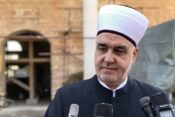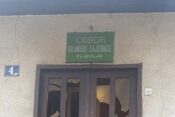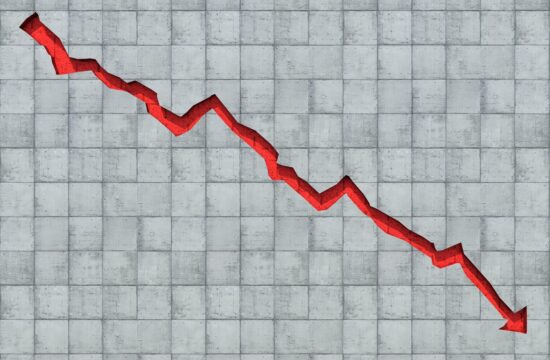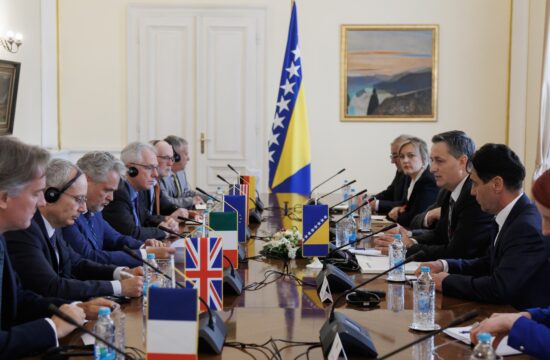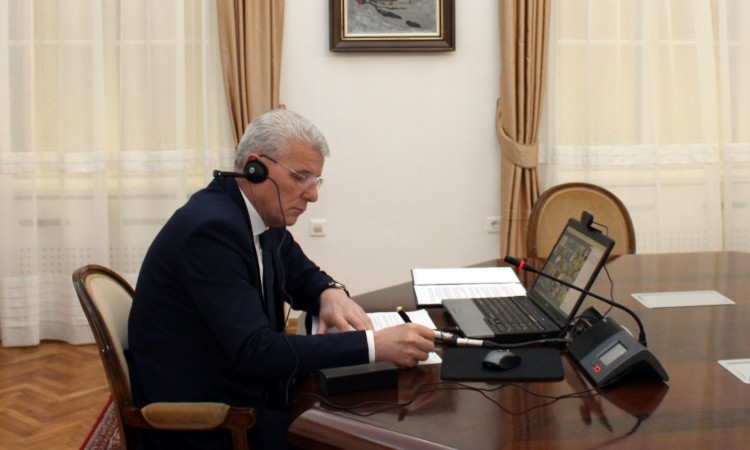
The Chairman of Bosnia’s tripartite Presidency and Bosnia’s Foreign Affairs Minister asked authorities in Montenegro to ensure protection for Bosniaks living there following a series of attacks and threats they have endured throughout the past several days since the election in the country took place.
Reports about physical attacks and threats targeting the Bosniak community in Pljevlja, Montenegro, have caused concern among Bosnian officials in recent days.
The head of Bosnia’s Islamic Community, Husein Kavazovic, reacted to the “anti-Muslim messages of hate which can be heard more and more often” in Montenegro and to a recent physical attack on Bosniaks in the town of Pljevlja, arguing that the situation reminds of a “return of the ideologies that already led to crime and genocide in this area in the 1990s.”
On Tuesday evening, the building of the Islamic Community in Pljevlja was targeted by vandals who broke the door glass panes and left threatening messages.
The incidents came days after Montenegro's parliamentary election which saw opposition coalitions in the country taking the majority in parliament from President Milo Djukanovic’s Democratic Party of Socialists (DPS) after nearly three decades of the rule.
The Chairman and Bosniak member of the tripartite Presidency, Sefik Dzaferovic, discussed the election results and the attacks on Bosniaks with Montenegrin President Milo Djukanovic in a phone conversation on Wednesday.
He asked Djukanovic to ensure that Montenegro's institutions put an effort into protecting Bosniaks and prevent new attacks, threats and provocations.
Djukanovic responded that Montenegro’s institutions will do their best to do so and reaffirmed his country’s commitment to stability, multi-ethnicity, EU integrations and NATO membership.
Bosnia’s Foreign Affairs Minister, Bisera Turkovic, also called upon Montenegro's authorities to work on calming down the tensions in the country and to stop and sanction all those responsible for the attacks.
Turkovic said that Bosnia and Montenegro have built up a good relationship throughout the past few years and now have no outstanding issues between them. She said that the status of Bosniaks in Montenegro and their representation in institutions of the country has improved, calling it a “positive example of treatment of all citizens” and the “direction the country should continue going on its European and NATO path.”
“The recent events, following the elections, suggest a deviation from this path when considering the attitude towards Bosniaks. Different political views must never be a reason for expressing intolerance and hatred towards other peoples,” she said.
“I sincerely hope that the citizens of Montenegro, political representatives and religious officials, will clearly distance themselves from those who spread hatred and intolerance and that this country, in which all citizens will be equal and have the same rights, will continue on its path of progress,” she concluded.

